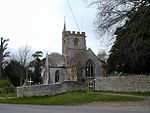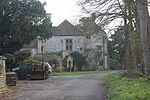Henry Lyte (botanist)
1529 births1607 deaths16th-century English botanists16th-century English male writers16th-century English naturalists ... and 8 more
16th-century English non-fiction writers16th-century English translators16th-century antiquarians17th-century English botanists17th-century antiquariansEnglish antiquariansEngvarB from July 2017People from South Somerset (district)

Henry Lyte (1529? – 16 October 1607), also known as Henry the Elder, was an English botanist and antiquary. He is best known for two works, A niewe Herball (1578), which was a translation of the Cruydeboeck of Rembert Dodoens (Antwerp, 1564), and an antiquarian volume, The Light of Britayne: a Recorde of the honorable Originall and Antiquitie of Britaine (1588), both of which are dedicated to Queen Elizabeth I.
Excerpt from the Wikipedia article Henry Lyte (botanist) (License: CC BY-SA 3.0, Authors, Images).Henry Lyte (botanist)
Bonfire Lane,
Geographical coordinates (GPS) Address Nearby Places Show on map
Geographical coordinates (GPS)
| Latitude | Longitude |
|---|---|
| N 51.0525 ° | E -2.6744 ° |
Address
Bonfire Lane
TA11 7BN , Charlton Mackrell
England, United Kingdom
Open on Google Maps








